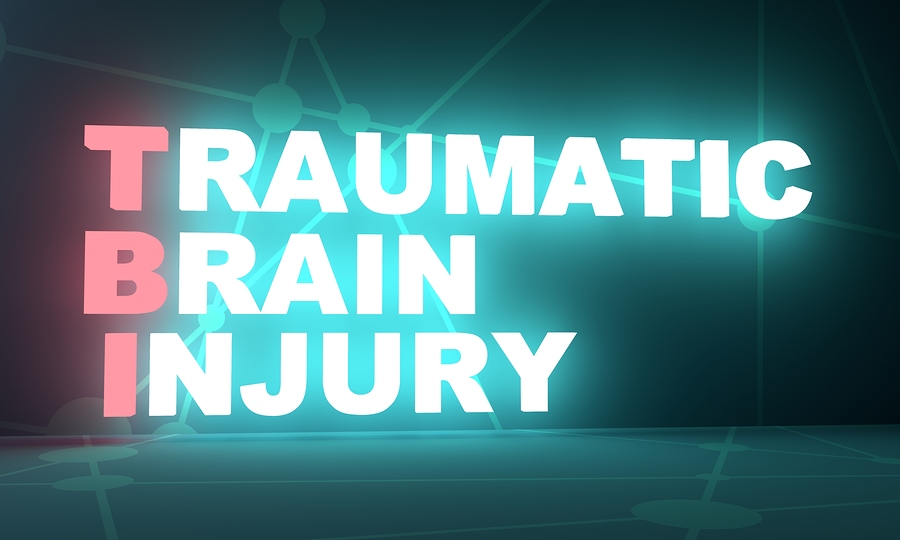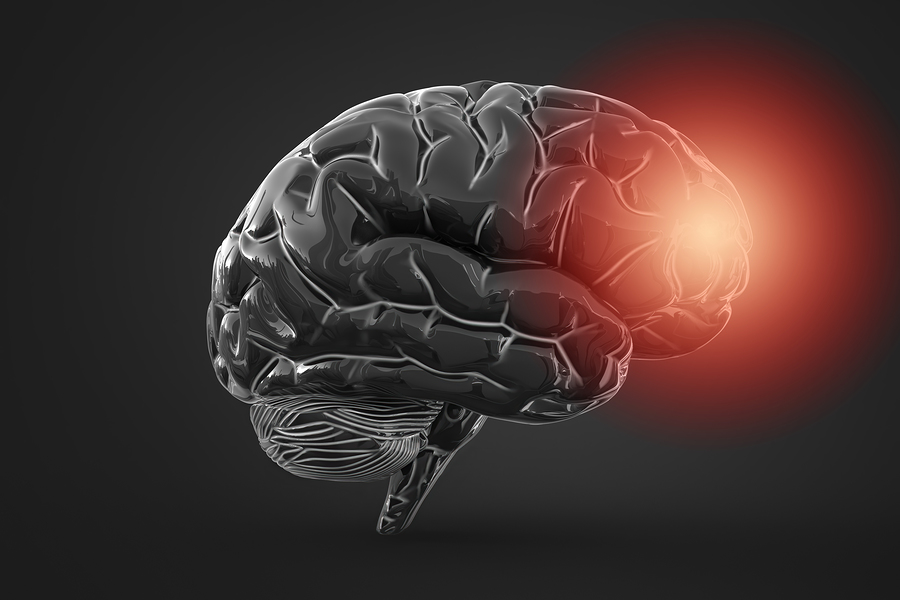When you leave the house to head to work, run errands, or just to take advantage of the sights and sounds of your hometown, you expect to return home safely. No one anticipates their day will end in a health emergency, particularly not one caused by someone else’s careless, reckless, or intentionally harmful actions. Unfortunately, accidents strike when we least expect them, and they can turn our lives upside down in a fast-second by leaving us seriously injured. 
One of the most serious accidental injuries residents and workers can suffer is a traumatic brain injury (TBI). In this blog post, we look at the many ways a TBI can happen, and how a lawyer can help you when a TBI disrupts your or a loved one’s life. For answers to your questions about a traumatic brain injury caused by a specific accident, contact an experienced TBI attorney today.
Traumatic Brain Injury Overview
A traumatic brain injury usually happens when a person suffers a blow to the head or impact to the body involving enough force to cause the brain to move inside the skull. (Yes, a TBI can occur even if the victim does not take a direct blow to the head.) Traumatic brain injuries can also result from a penetrating injury, such as a gunshot wound.
Doctors tend to classify TBIs into three degrees of severity: mild, moderate, and severe. Regardless of the degree of severity assigned to a TBI by a doctor, however, the injury can have profound lifelong effects on the victim. Even a so-called “mild” TBI (also known as a concussion) can leave a victim with long-lasting neurological deficits that cause symptoms including persistent headaches, fatigue, brain fog, light sensitivity, nausea, balance problems, depression, and anxiety. The most severe TBIs can prove fatal or may leave victims in a permanent state of semi-consciousness.
Recovery from a TBI does not necessarily follow a linear path. Victims and their families often describe a frustrating, emotionally-draining “two steps forward, one (or two) step back” progression that takes months or years to resolve, if ever. How a patient will respond to standard TBI treatments and therapies can vary widely from case-to-case, differing based on factors as subtle as the precise location of the injury and, perhaps, small differences in patients’ genetics. The uncertainty of recovering from a TBI puts victims and their families under significant stress.
Recovering from a TBI can also cost a lot of money. Health insurance may not cover some of the necessary expenses of TBI treatment, such as individualized therapies and assistive equipment. TBI victims also often struggle to return to work in their former capacity, resulting in a loss of income that compounds the financial strain of injury-related expenses.
Common TBI Causes
Many accidents or incidents can cause a TBI, although some are more common than others. Below, we review those more-usual causes of brain injuries.
Motor Vehicle Accidents
The number of car accident fatalities decreased in the last year for which records are currently available. That is good news, but even while doctors save the lives of crash victims, those victims may often still suffer severe effects from TBIs, which constitute one of the most common auto accident injuries. TBIs often happen in car accidents because a collision, at a minimum, jolts vehicle occupants’ bodies and heads. Many crash victims bump their heads against the side of a vehicle, also, heightening the risk of a TBI. Even the sudden impact of a person’s face against an inflating airbag can impart forces that cause the brain to move in the skull.
Accidental Falls
According to the Centers for Disease Control and Prevention (CDC), America’s public health agency, falls constitute the most common cause of TBI in adults. Even a fall that looks minor can cause a significant TBI. Falls often cause a blow to the head, of course, but even when a person does not take an impact directly to their head the brain can still move inside the skull from the violent force of landing hard on the ground. Young children and older adults, especially, face risks of TBI in falls, mostly because they tend to fall more often.
Sports-Related Collisions
Recent research and news stories have drawn attention to the risks for professional football players of developing chronic traumatic encephalopathy (CTE), a brain disease believed to result from suffering repeated brain trauma. However, football is not the only sport in which concussions and other TBIs pose a serious risk to player health. Any sport in which athletes collide with each other, fall hard to the ground, or stop suddenly (such as in ice hockey or gymnastics) can inflict concussions on athletes.
Younger athletes, in particular, face significant risks from these injuries, because their brains are developing, and they often lack the skill and strength to absorb punishing impacts. Of special concern, research shows that getting one concussion increases the risk of a second, and so on, and that the risk may run still higher for (young) female athletes. All parents and coaches of youth athletes should educate themselves about the risks, signs, and treatment of concussions as a preventive measure to keep children safe and healthy while playing sports.
Gunshot Wounds and Explosion-Related Injuries
If a victim survives a gunshot wound to the head, the victim will still almost always suffer severe symptoms from a TBI. Gunshot wounds constitute a common cause of TBI among two populations: people who attempt suicide, and soldiers in combat. The second group, military personnel, also face risks from non-gunshot-related TBI caused by proximity to detonations. Both in-theater and in-training soldiers can suffer these injuries, which result from the effect of shock waves from any explosion on the human body (for example, the detonation of an explosive device, or the blast from the firing of a weapon).
Other
The categories above account for many, but by-no-means all, traumatic brain injuries. No matter how a TBI happens, it can leave a victim struggling with profound and long-lasting cognitive, emotional, and motor impairments. Always seek medical attention for any potential TBI, and always connect with an experienced TBI attorney if your injury resulted from someone else’s dangerous decisions or actions.
TBI Symptoms
TBI symptoms vary widely from person-to-person. The brain serves as the literal and figurative nerve center of a person’s physical and emotional functions. The part of the brain affected by an injury determines, to a large degree, its effect on the injury victim.
As a general matter, however, common TBI symptoms include:
- Loss of consciousness;
- Memory loss;
- Loss of speech or language skills;
- Loss of motor coordination;
- Dizziness;
- Headaches;
- Blurred vision;
- Amnesia;
- Disorientation;
- Inability to concentrate;
- Changes in mood, affect, and personality;
- Agitation and irritability;
- Depression and anxiety; and
- Changes in appetite.
Symptoms of a TBI can emerge immediately (such as a loss of consciousness) or emerge slowly over hours or days. The variability of when symptoms show themselves makes seeking medical care essential after any jolt, blow, or impact that has even the potential to cause a brain injury. (This is why we have seen professional sports, for instance, follow instant concussion protocols in recent years.)
Any of these symptoms could indicate that something more serious has happened and that a person needs immediate medical care. However, even in the absence of immediate symptoms, someone who has suffered a jarring impact should always play it safe and visit a doctor. Remember, even an impact that does not involve a blow to the head can cause a concussion. 
So, for example, if someone rear-ends your car, causing your head and neck to whip back and forth, seek medical treatment right away to diagnose whether you received a TBI, among other injuries you may have suffered. (Soft tissue damage is another common one in this situation.) Then, consult an experienced brain injury attorney to determine whether you have the right to financial compensation for any injury the doctor finds.
How a TBI Lawyer Can Help
Traumatic brain injuries represent one of the more complicated medical conditions for doctors to understand and treat. By the same token, obtaining compensation for victims of a TBI caused by someone else’s careless, reckless, or intentionally harmful action requires the help of a lawyer with deep knowledge of the medical science and of the financial considerations relating to traumatic brain injuries. Every legal case involving a TBI has its own unique challenges.
However, in general, a lawyer for TBI victims and their families serves their interests by:
- Investigating how the TBI happened, the nature and extent of the injury, and the prognosis for a recovery. Lawyers with the knowledge and resources to understand TBI cases know how to access and analyze medical information they need to perform this analysis. They also routinely work with trusted medical experts to develop a deep and thorough understanding of the victim’s TBI-related deficits and needs. Lawyers do this work to pinpoint the precise factors that led to the TBI, and to identify the individuals or corporations who should face legal liability for causing the victim harm.
- Negotiating with those legally-liable parties, their defense attorneys, and their insurance companies, to achieve a fair and reasonable financial settlement that addresses all of a TBI victims’ present and future financial needs. Here, too, the attorney’s deep well of knowledge and resources relating to brain injury science comes in especially handy. By having a command of the critical facts that predict how a victim might live with TBI over the long-term, experienced TBI lawyers can drive settlement negotiations to an appropriate level of compensation, or conversely, advise a TBI victim not to accept a settlement offer that comes up short.
- Litigating a traumatic brain injury claim, when negotiations fail to achieve a fair and reasonable settlement that meets a TBI victim’s present and future financial needs. Oftentimes, the early stages of litigation will happen in parallel with settlement negotiations. Again, the lawyer’s experience and familiarity with TBI causes, treatments, and recovery modes give the lawyer’s injured client a leg-up over defense lawyers for legally-liable parties, by giving the lawyer and client the option of taking the case to court and explaining the causes and effects of a TBI to a judge and jury.
No traumatic brain injury claim has a guaranteed outcome, of course. The unique facts and circumstances of any given TBI will largely determine whether and how much the victim recovers as compensation for the injury.
As a general matter, however, the victim of a TBI caused by someone else’s unreasonably dangerous decisions or actions can seek to recover money to help pay for medical and other TBI-related expenses, lost wages and diminished earning capacity, and the physical pain, emotional suffering, and damage to the victim’s (and victim’s family’s) life. Money cannot erase a brain injury, but it can provide critical financial support that a TBI victim needs to move forward with life as best as possible.
Contact a Skilled TBI Lawyer for More Information
Traumatic brain injuries take a heavy toll on victims and their families every day. The least our legal system should do for those struggling with the aftermath of a TBI caused by someone else’s decisions or actions is to ensure that they receive the financial compensation they deserve and need to move forward with their lives.
If a traumatic brain injury caused by someone else’s careless, reckless, or intentionally-harmful actions devastates your life or the life of a loved one, then seek high-quality legal advice as soon as possible. You may have the right to receive a significant amount of financial compensation, but you must act quickly to give yourself the best chance of that outcome. Contact a knowledgeable, experienced, resourceful traumatic brain injury attorney today for a free consultation.







